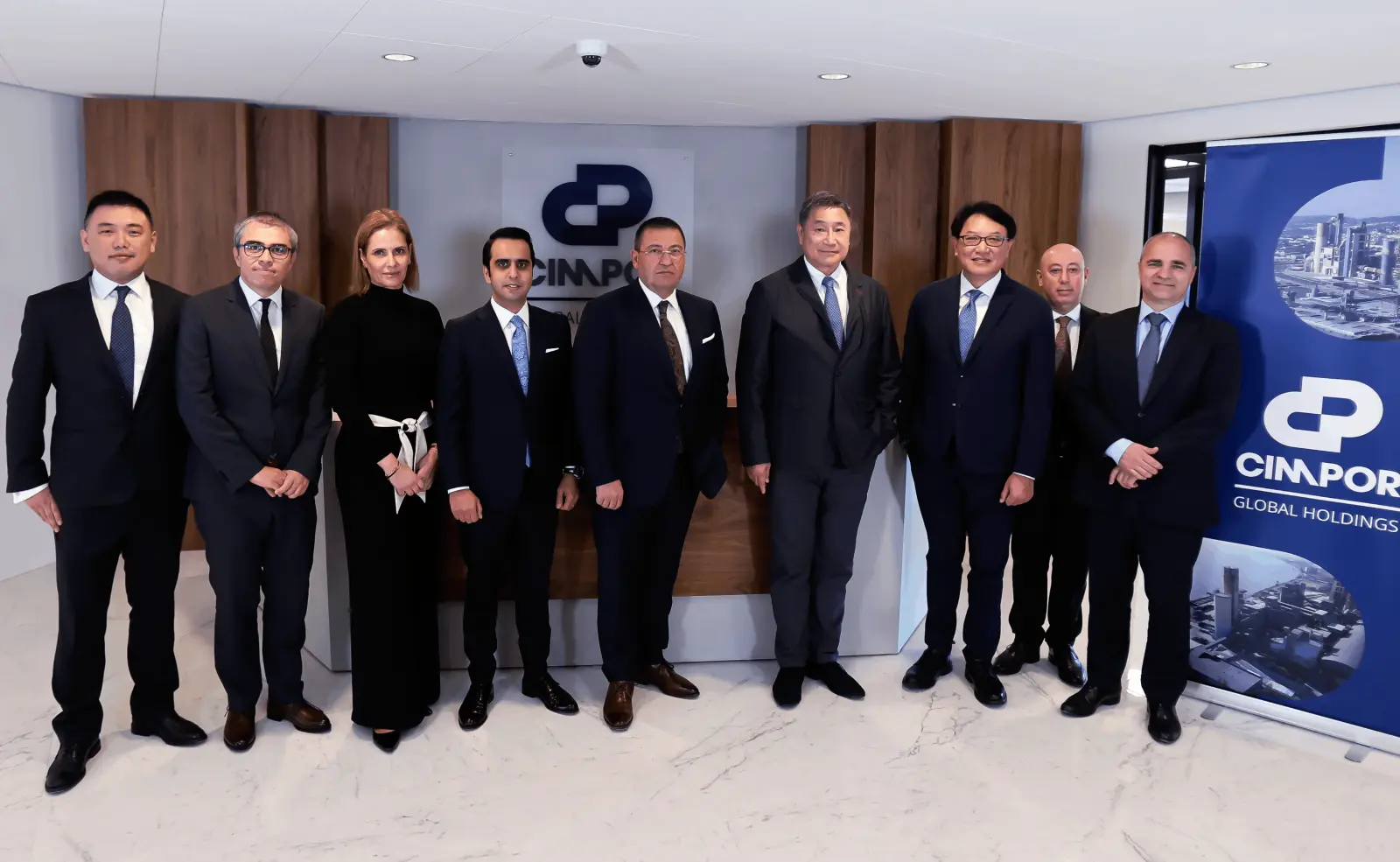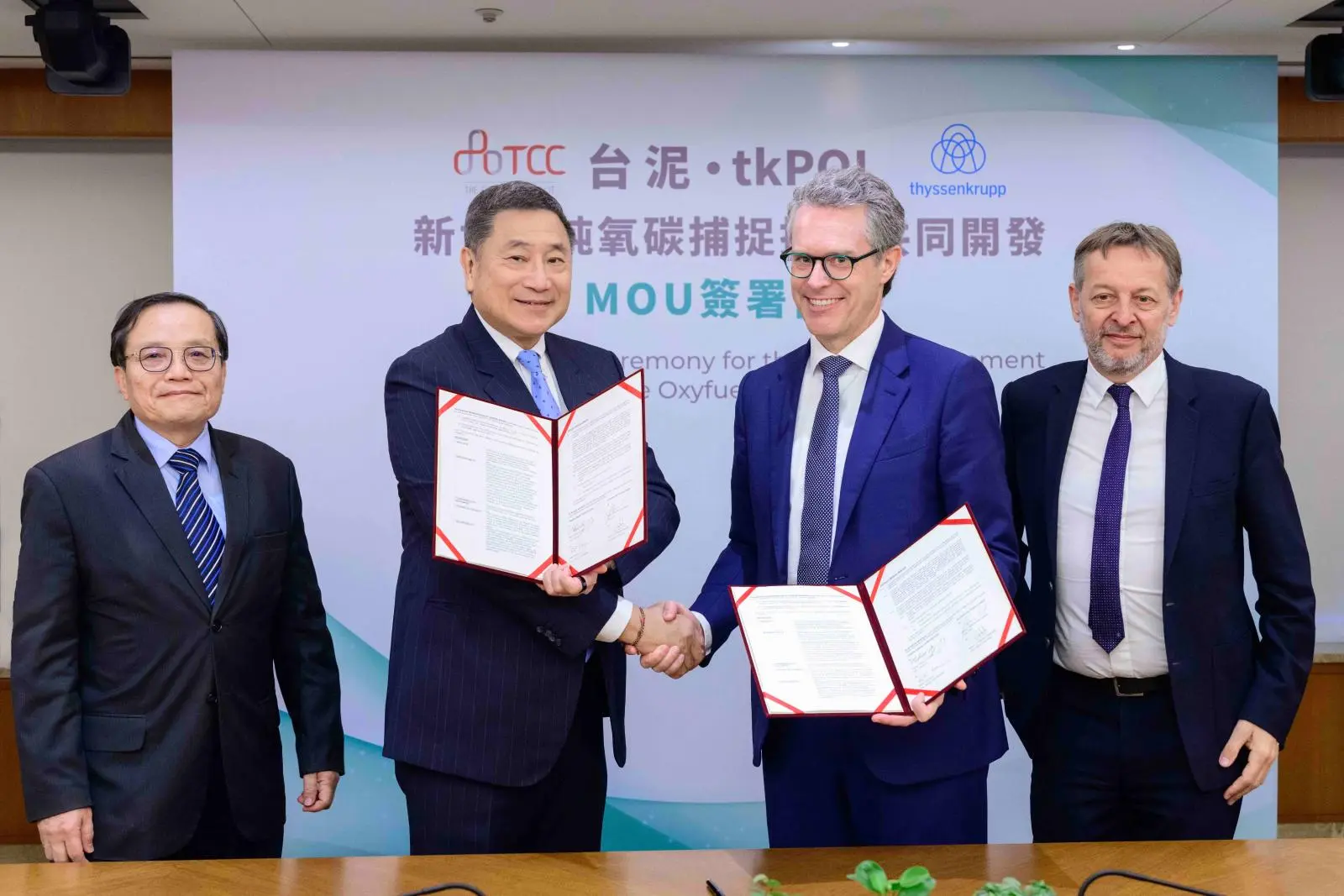TCC Completes €621 Million Expansion in Portugal and Turkey, and Secures Sustainable Loan facility for Global Lowest Carbon Cement Target.
TCC Completes €621 Million Expansion in Portugal and Turkey, and Secures Sustainable Loan facility for Global Lowest Carbon Cement Target.
2024.03.07
-
Copied

On 7th March, Taiwan Cement Corporation (TCC) announced the completion of the expansion of investment in European low-carbon cement transaction related closing procedures, with a total amount of €621 million (approximately NTD21.3 billion). TCC becomes one of the main suppliers of low-carbon cement in Europe, after increasing its stake in Turkey by 20% and in Portugal by 60% and holds a total of 60% in the "Joint Venture Company of Turkish Cement Assets" and 100% in Cimpor Portugal.
Since 2018, TCC has partnered with OYAK through a joint venture company. Over the past five years, the joint venture company's net profit has grown sixfold, continuously contributing to TCC's revenue. As of now, the joint venture company has also accumulated 2.37 million tons of carbon credits in Europe.
According to the assessment report by the international research institution Research Nester, the European low-carbon cement market is projected to grow annually at a compound annual growth rate (CAGR) of 8.5% from 2022 to 2030. TCC believes that with the European Union officially implementing the CBAM (Carbon Border Adjustment Mechanism) in the future, whether it's domestic or imported cement, low-carbon cement will become the main competitive advantage for the cement companies entering the European market.
On March 6th (European time), Nelson Chang, Chairman of TCC, and Roman Cheng, President of TCC along with Suat Calbiyik, CEO of the future 'Joint Venture Company of Turkish Cement Assets' and Cimpor Portugal, and Baren Celik, CFO of OYAK Group, concluded this transaction at the headquarters of Cimpor Global Holdings in Amsterdam, Netherlands.
The final consideration will be settled and reconciled based on the net asset figures verified by the accountant as of February 29th, 2024. The revenues related to Turkey and Portugal will also be officially consolidated into TCC’s consolidated financial statements starting from March of 2024, and the first-quarter consolidated result will be announced in early May. With the addition of a more comprehensive European low-carbon cement landscape, TCC’s overall revenue structure will become more diverse, resilient, and growth-oriented.
To finance the expansion of the European low-carbon investment, TCC also signed an €800 million unsecured sustainability linked loan facility. The participating banks in the loan facility includes credit Agricole CIB, one of Europe's largest financial groups, acting as the Sustainability Linked structuring Agent and the Facility Agent Bank, along with CTBC Bank, Taipei Fubon Bank, and Oversea-Chinese Banking Corporation Limited (OCBC Bank) from Singapore, among others. The loan received strong support with 1.5 times over-subscription.
This loan facility is linked to the carbon intensity indicators of Scope 1 and Scope 2 of TCC, demonstrating the TCC’s determination to reduce carbon emissions and transition to low-carbon, while continually increasing the proportion of green financing.
The high carbon price in the EU, coupled with the recently revised Energy Performance of Buildings Directive (EPBD) which mandates that all new public buildings in EU member states must be zero-carbon by 2026, and this requirement extends to all new private buildings by 2028, has led to a year-on-year increase in demand for low-carbon cement. Additionally, in the European cement market, imported cement has consistently held a certain proportion.
TCC, through its recent expansion, now holds 100% ownership of Portugal's Cimpor company, which operates the world's second commercial cement plant using 90% biomass fuel in Cameroon, Africa. Additionally, in Ivory Coast, the company has established the world's first large-scale production base for calcined clay cement, which reduces carbon emissions by at least 40% compared to traditional cement after mixing and roasting clay blends.
Upon holding 100% ownership of Cimpor, TCC will expand its research and development efforts in low-carbon cement and continue to develop ultra-low-carbon cement. The goal is to become one of the brands globally capable of producing the lowest carbon cement by 2025.
More Related Information
-
 2024.03.02Nelson An-Ping Chang: Carbon knowledge is an important competitive edge for the younger generation. TCC's green transformation strategy for talent development
2024.03.02Nelson An-Ping Chang: Carbon knowledge is an important competitive edge for the younger generation. TCC's green transformation strategy for talent development -
 2024.02.22TCC reaching out to climate action talents, deploying AI virtual spokespersons, expanding the generative AI team, and aiding in the integration of technologies
2024.02.22TCC reaching out to climate action talents, deploying AI virtual spokespersons, expanding the generative AI team, and aiding in the integration of technologies -
 2024.01.31TCC Joins Hands with Germany's thyssenkrupp Polysius to Develop Innovative Carbon Capture Technology with Separate Oxyfuel
2024.01.31TCC Joins Hands with Germany's thyssenkrupp Polysius to Develop Innovative Carbon Capture Technology with Separate Oxyfuel


